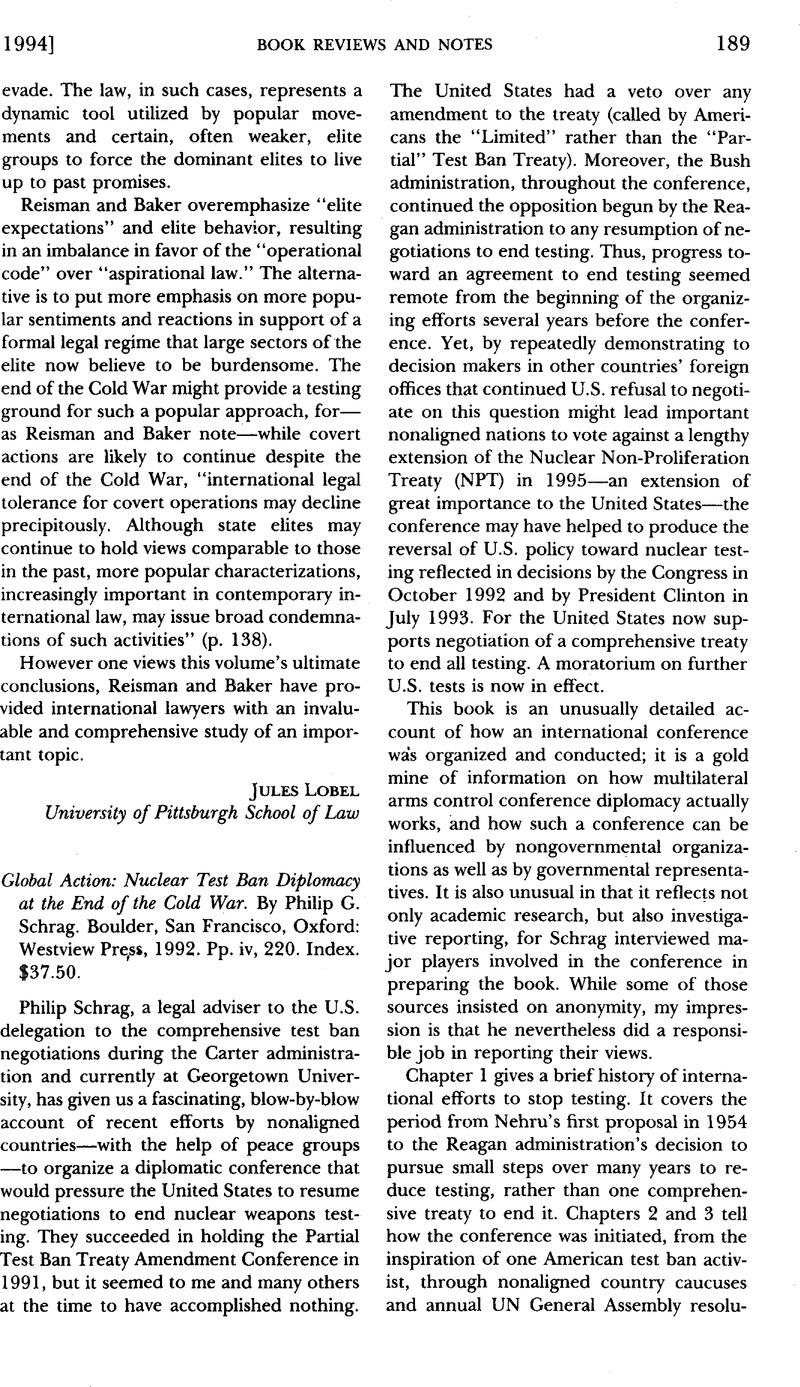No CrossRef data available.
Published online by Cambridge University Press: 27 February 2017

1 See generally David A. Koplow, Passing Good Faith: Has the United States Violated Article VI of the Nuclear Non-Proliferation Treaty?, 1993 Wis. L. Rev. 301. Article VI of the NPT commits NPT parties, including the United States, to undertake “to pursue negotiations in good faith on effective measures relating to cessation of the nuclear arms race at an early date.” Koplow argues that a ban on all nuclear testing was one of the “effective measures” intended to be included in this obligation, and that the U.S. refusal to negotiate for a comprehensive test ban treaty during the period from the Reagan administration to the 1992 statute was a violation of Article VI.